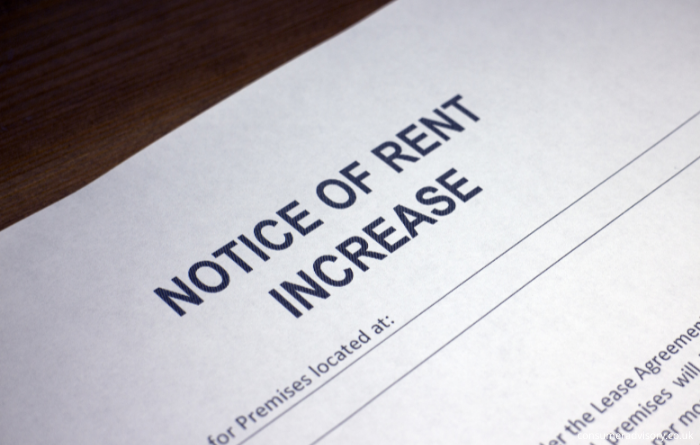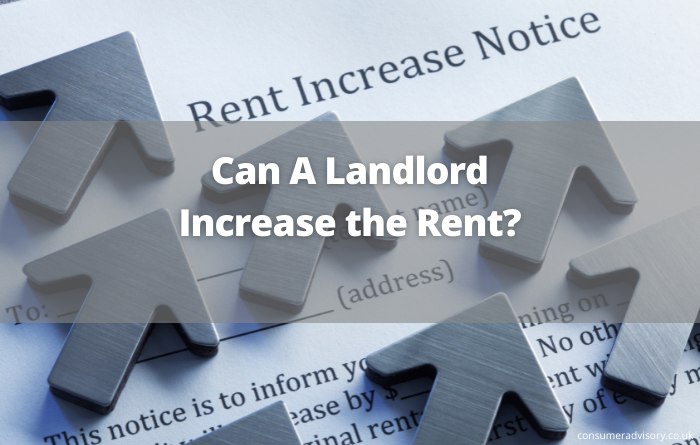If you’re a tenant, you might be wondering if your landlord can increase the rent. The answer depends on the terms of your tenancy agreement and the type of tenancy you have. If all parties agree to a rent increase, it can be added to your tenancy agreement with a written record of the agreement. If your tenancy agreement is renewed at the end of the fixed term, your landlord can also increase the rent. Finally, if your tenancy has lapsed into a periodic tenancy, your landlord can provide an s13 notice to increase rent. So, while there are some circumstances in which your landlord can raise the rent, it’s important to know your rights as a tenant.
Check your tenancy agreement
As a landlord, it is important to be aware of the rules for increasing rent. These rules will vary according to the type of tenancy. For example, if you have a long-term lease, you are guaranteed that the rent will not increase for the duration of the lease.
However, if you are on a month-to-month tenancy, the landlord may increase the rate of rent every year. Not all landlords will do this, but it is important to be aware of the possibility. If you are planning on increasing rent, make sure to give your tenants plenty of notice so that they can budget accordingly. By following the proper procedures, you can ensure that everyone is happy with the arrangement.
Fixed term tenancy agreement
During a fixed term contract, landlords are not allowed to increase the rent whenever they please. If the landlord wishes to raise the rent, the proposed rent increase must be fair and realistic, and in line with local rents.
Tenants have the right to contest any proposed rent increase that they feel is excessive. If the landlord and tenant cannot reach an agreement, either party can apply to the tribunal for a determination.
The tribunal will consider all relevant factors, including the current market rent for similar properties, before making a decision. In most cases, the tribunal will order a fair and reasonable rent increase that is in line with local market conditions.
Rent increase by mutual agreement
A written agreement is then prepared by the landlord, which will include the new agreed-upon rent increase and the start date for when the new rent begins. Both parties sign and date the letter, with each retaining a copy for their records.
All parties involved in the tenancy need to agree to increase the rent
The new rent becomes the ongoing rent for the tenancy once it is paid once. If any party does not agree to the rent increase, then the rent can only be increased when the fixed term ends. This protects landlords and tenants from arbitrary or unfair increases in rent during the tenancy.

Periodic tenancy rental agreements
When an existing term for the leased space is over, the lease automatically becomes an annual lease. Unless a lease agreement does not provide information regarding rent hikes, the landlord will increase the rent only when a landlord has not provided an exemption to the requirement.
Periodic tenancies are less likely to prevent tenants from being evicted because they are less likely to object to rent increases. The occupant can decide whether to evict the tenant using the appropriate procedures rather than paying less rent.
If you have a periodic tenancy, your landlord has to give you notice before they can increase your rent without your agreement. In this instance, your landlord must use a section 13 notice, which refers to Section 13 of the Housing Act (1988).
This means that for monthly tenancies, the landlord will need to give at least one month’s notice of the rent increase, and the new rent must begin on the first day of a rental period. For example, if you pay your rent on the first of each month, your landlord cannot increase your rent mid-month.
However, if you have a fixed-term tenancy, your landlord is not allowed to increase your rent during the fixed term unless it is stated in your contract that they can do so.
When a periodic tenancy comes to an end, the landlord and tenant are free to agree on a new rent. If they cannot agree, the landlord can serve a notice proposing a new rent.
This notice can only be served once per year, and it must comply with certain legal requirements. If the tenant disagrees with the proposed rent, they can refer the matter to the First Tier Tribunal.
However, section 13 cannot be used in cases where there is a rent review clause in the contract or during a fixed term tenancy. In these cases, the parties will need to follow the procedures set out in their agreement or in law.
What if you don’t agree to a rent increase?

You have a right to negotiate with the landlord and maybe find the perfect solution for both you and the price you can afford. If a landlord has refused to agree with you may appeal the decision of the landlord to the court to make a re-application. The tribunal includes 2 or 3 professionals like lawyers and surveyors. They’ll examine how much your landlord can charge, based on a new lease, for the same home. Eventually, he’ll decide whether you are paying a fair price for your rent. You must pay the rent in the meantime.
If you don’t pay your rent increase
When a landlord can’t get your rent to go up by making an amendment to your rental payment, he may attempt to take you away. No worries, you won’t be forced to quit. I have to get rid of the house. Your tenant must complete a felony detainment without you having lived with them. You must then give a copy to leave the property unless the case has been settled or ordered. See How to deal with expulsion. If you have evicted the property owner from the home it may take a few weeks and this can be incredibly short. Get Citizens Advice if you don’t want an increase in rent.
Eviction
Assured Shorthold Tenants are extremely vulnerable to eviction. The landlord must provide an additional two months of notice in advance of eviction. So Assured Shorthold tenants sometimes don’t have much option other than accepting the rental increases for a long stay. A leaser can make a section 21 notice at all points in their tenure, whether it is a rented period or a fixed term. However, landlords are only allowed to return possession after resuming the lease period if the landlord is capable of showing that certain requirements have been fulfilled.
If you have an assured shorthold or assured tenancy
The landlord may charge you more money for the rate the market has for the house. This is a typical cost for similar properties at the same time in the area around. Find properties for sale to see how much you’re expected to rent. You should see similar properties from the window of a realtor or by searching the internet. Your landlord cannot increase your rent over your fixed tenancies without your agreement. When the lease is renewed you will have to indicate when it will happen. There are rental review clauses in this.
If you need support in challenging your rent increase
Contact Citizens Advice if you are unsure about your landlord’s response – you want advice. In the event you want to continue the lease and have generally been a good tenant, your landlord will typically accept the new rate and not contest the new rate. If you get Housing Aid, you may be entitled to additional funds to pay for a higher rent. Tell council staff about housing changes and send a report if possible.
You can also find further information on the Shelter website.

